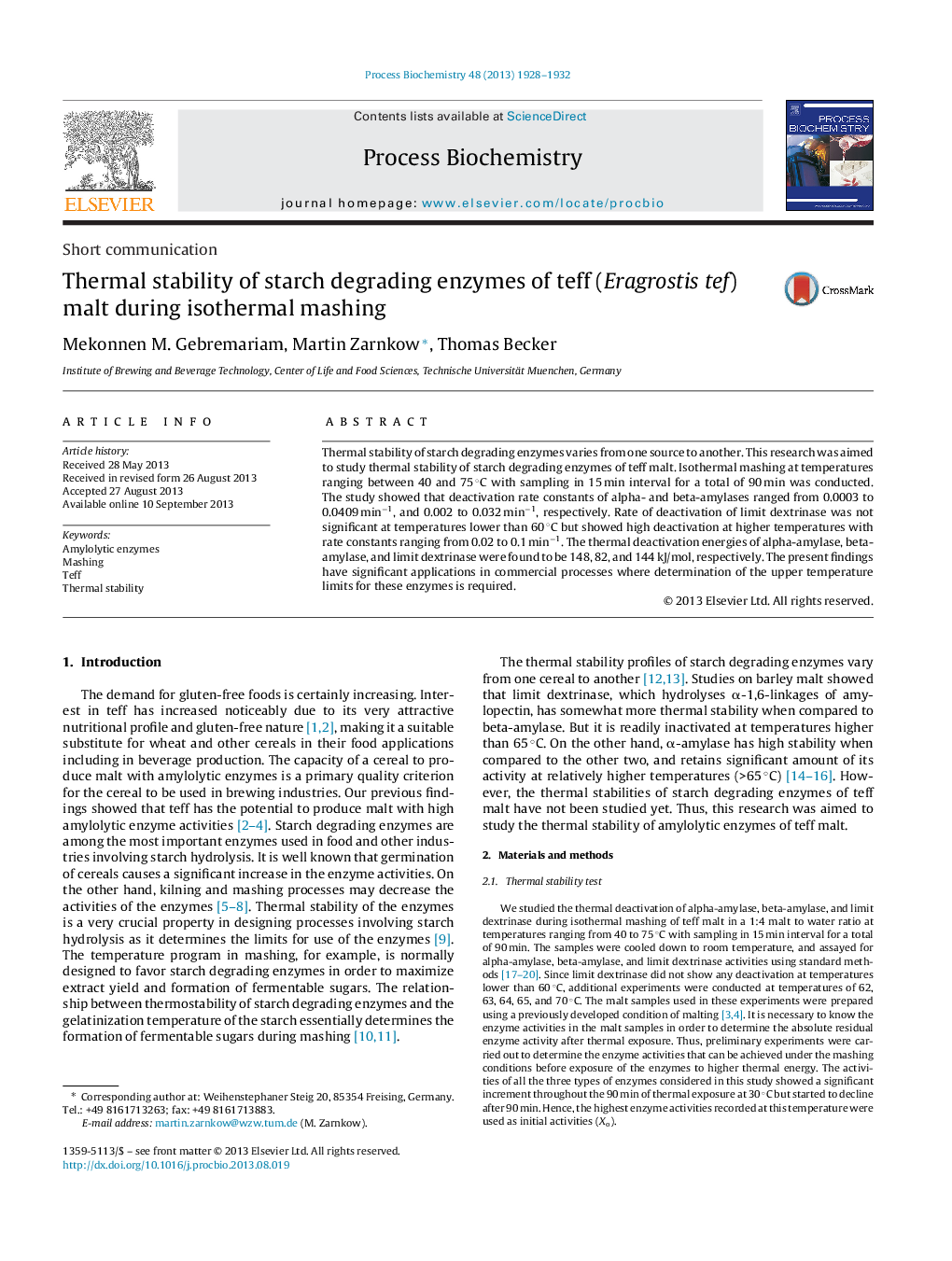| Article ID | Journal | Published Year | Pages | File Type |
|---|---|---|---|---|
| 34423 | Process Biochemistry | 2013 | 5 Pages |
•We studied thermal stabilities of amylolytic enzymes of teff malt.•We modeled thermal deactivation rates of the starch degrading enzymes of teff malt.•Alpha-amylase was the most stable enzyme among the amylolytic enzymes.•Beta-amylase and limit dextrinase were highly unstable at temperatures higher than 65 °C.
Thermal stability of starch degrading enzymes varies from one source to another. This research was aimed to study thermal stability of starch degrading enzymes of teff malt. Isothermal mashing at temperatures ranging between 40 and 75 °C with sampling in 15 min interval for a total of 90 min was conducted. The study showed that deactivation rate constants of alpha- and beta-amylases ranged from 0.0003 to 0.0409 min−1, and 0.002 to 0.032 min−1, respectively. Rate of deactivation of limit dextrinase was not significant at temperatures lower than 60 °C but showed high deactivation at higher temperatures with rate constants ranging from 0.02 to 0.1 min−1. The thermal deactivation energies of alpha-amylase, beta-amylase, and limit dextrinase were found to be 148, 82, and 144 kJ/mol, respectively. The present findings have significant applications in commercial processes where determination of the upper temperature limits for these enzymes is required.
